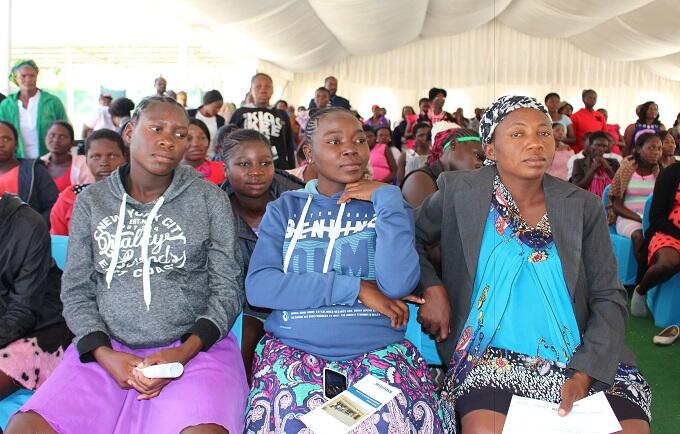WINDHOEK, Namibia – Health workers in Namibia should be able to carry out their duties diligently following the launch of a Clinical Handbook for Survivors Subjected to Intimate Partner Violence and/or Sexual Violence that is expected to provide a comprehensive response-based approach to Gender-Based Violence (GBV) victims at clinical level.
Today, Ministry of Health and Social Services (MoHSS) in partnership with World Health Organisation and United Nations Populations Fund (UNFPA) launched the Handbook with the aim of re-orienting health workers and strengthening synergies between MoHSS and other key ministries to provide quality and improved services to survivors of GBV.
Mr. Ben Nangombe, the Executive Director of the Ministry of Health and Social Services, said that the health sector is a key partner in the prevention of, early intervention and response to gender based violence. “Survivors who have been abused or assaulted need care and support. Health-care providers may be the first people in whom a survivor confides and speak about the violation they experienced. The health sector is thus, in most cases, an entry point to formal service provision,” he stated.
“There are practical steps throughout this Handbook to help while caring for and supporting a survivor who has experienced or is experiencing violence. There are simple steps that every health care provider, including those who are not specialists, can take to assist a survivor of violence to start recovering,” he explained.
Speaking on behalf of WHO and UNFPA, Mrs. Dennia Gayle, UNFPA Representative, also emphasised that health workers were among the front-line service providers that survivors sought help from, and was full of praise toward the government for collaborating and making the handbook a reality.
“It is indeed encouraging to see that Government is striving to address GBV especially against women and girls. While primary prevention of violence against women and girls – especially adolescent girls is paramount – response and impact mitigation are important levels of interventions. The role of the health workers in prevention and response to intimate partner violence and sexual violence cannot be undermined,” said Gayle.
Gayle is of the belief that the only way to address GBV effectively is through a multi-sectoral approach that incorporates prevention, protection and response, as well as the provision of essential services in health, police, justice and psycho-social support.
“I am in particular delighted to note that the Handbook also makes provision to respond to mental health needs of victims/survivors which is often not addressed.”
The five part Handbook focuses on, among others: Awareness about GBV; First-line support for intimate violence and sexual assault; as well as Additional clinical care after sexual assault. It also touches on Additional support for mental health and Intimate partner violence and family planning.
In the coming months, the Health ministry will train health care workers at facility level in various regions on the Clinical handbook, provide supportive supervision; monitor, document and start to report on victims/survivors of GBV accessing services.
“It is important that all health-care providers understand the relationship between exposure to violence and women’s ill health, and are able to respond appropriately,” advised Gayle.
Violence against women and children in Namibia remains a key public health concern. The last (2013) Demographic Health Survey reported that , 33 percent of ever-married women age 15-49 report ever having experienced physical, sexual, and/or emotional violence from their spouse, and 28 percent report having experienced such violence in the past 12 months prior the survey. Among ever-married women who had experienced spousal physical violence in the past 12 months prior the survey, 36 percent reported experiencing physical injuries. Six percent of women reported experiencing violence during pregnancy.


